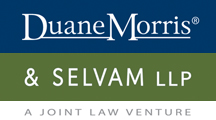18 May, 2017
Introduction
Passed by the Singapore Parliament on 10 March 2017, the Companies (Amendment) Act 2017 significantly amended the Companies Act (Cap 50) (the “Act”) to:
- reduce compliance costs and administrative burdens on companies;
- increase transparency in terms of ownership and control of business entities;
- boost Singapore’s competitiveness as a business hub; and
- improve Singapore’s competitiveness as a choice venue to conduct international debt restructuring by improving Singapore’s corporate rescue and restructuring processes.
The amendments will be implemented in phases – some of the amendments took effect on 31 March 2017, while the next two phases of the amendments will take effect within the first half of 2017 and early 2018.
Table of Key Amendments
The table below is a summary of the key amendments, with the previous and new positions, as well as the implementation timeline.
|
Key Amendments Effective as of 31 March 2017 |
||
|
Description |
Previous position prior to Amendments |
New position pursuant to Amendments |
|
Common Seal |
Contracts and Deeds executed by a company must be done under the common seal of the company. |
A common seal is now optional.[1] A company may execute a Deed by signature:[2]
|
|
Register of members of foreign company |
A foreign company which has a share capital and has any member who is resident in Singapore must keep at its registered office in Singapore or at some other place in Singapore a branch register. |
A registered foreign company must keep a register of its members at its registered office in Singapore or at some other place in Singapore and must lodge a notice with the Registrar specifying the address at which the register of members is kept.[3] The register of members must contain:[4]
|
|
Register of controllers |
No prior clause. |
Companies must keep a register of controllers.[5] A person or entity is a controller if it has a significant interest or significant control over the Company.[6] The register of controllers must be made available to the Registrar and public agencies for inspection upon request[7] but must not be disclosed to any member of the public.[8] It is the duty of the company to:
It is the controller’s duty to: |
|
Register of nominee directors |
No prior clause. |
Companies must keep a register of its nominee directors.[14] The register of nominee directors must be made available to the Registrar and public agencies for inspection upon request[15] but must not be disclosed to any member of the public.[16] A nominee director must inform the company of that fact and provide particulars of the person for whom the director is a nominee.[17] A nominee director must inform the company: (i) that he ceases to be a nominee within 30 days after such cessation; and (ii) of any change to the particulars provided within 30 days after such change.[18] |
|
Key Amendments to Take Effect Within the First Half of 2017 |
||
|
Description |
Previous position prior to Amendments |
New position pursuant to Amendments |
|
Transfer of registration |
No prior clause. |
Foreign companies that intend to relocate their regional and worldwide headquarters to Singapore may transfer their registration from the foreign place of incorporation to Singapore. |
|
Key Amendments to Take Effect in Early 2018 |
||
|
Description |
Previous position prior to Amendments |
New position pursuant to Amendments |
|
Holding of Annual General Meeting (“AGM”). |
Companies must, in general, hold the AGM once in every calendar year and not more than 15 months after the holding of the last preceding AGM. |
Listed public companies must hold the AGM within 4 months of the end of each financial year. Private companies must hold the AGM within 6 months of the end of each financial year. |
|
Dispensation of AGM for private companies |
A private company may, by a resolution passed at a general meeting, dispense with the holding of AGM. |
A private company need not hold an AGM for a financial year if:
|
|
Filing of annual returns |
Companies must lodge the annual return within 30 days after its AGM. Companies with a share capital and keeping a branch register outside Singapore must lodge the annual return within 60 days of the AGM. Companies that have dispensed with the AGM must lodge the annual return within 30 days of the passing of the written resolutions. |
Listed public companies must lodge the annual return with the Registrar after its AGM within 5 months after the end of its financial year. Private companies must lodge the annual return with the Registrar after its AGM within 7 months after the end of its financial year. Companies with a share capital and keeping a branch register outside Singapore must lodge the annual return with the Registrar after its AGM: (i) within 6 months after the end of its financial year if it is a listed company; and (ii) within 8 months after the end of its financial year if it is a private company. Companies that have dispensed with the AGM must lodge the annual return within 30 days of the passing of the written resolutions. |
|
Financial year end (“FYE”) |
No prior clause. |
Companies must notify the Registrar of their FYE upon incorporation. Companies must apply to the Registrar for approval to change their FYE if: (i) the change of FYE will result in a FY longer than 18 months; or (ii) the FYE was changed within the last 5 years. Duration of the financial year (“FY”) must not be more than 18 months in the year of incorporation unless approved by the Registrar. Companies with unusual FY period (not 12 months) should notify the Accounting and Corporate Regulatory Authority. |
Improving Singapore’s Corporate Rescue and Restructuring Processes
In addition, the Companies (Amendment) Act 2017 makes it easier for troubled firms to restructure, giving them the additional flexibility to avoid the risk of liquidation.
With regard to schemes of arrangements, creditors will be granted greater protection due to increased scope of the statutory moratorium. A 30-day moratorium will also be automatically engaged upon the filing of an application. Courts will also be able to approve a scheme even if the requisite majority is not achieved, provided the dissenting class of creditors are not unfairly prejudiced. During judicial management, courts will be able to grant a judicial management order even if a secured creditor objects. With regard to winding up, provisions will be enacted to enhance Singapore’s capability in resolving cross-border insolvencies and increase its attractiveness as a centre for debt restructuring. These include, in particular, the proposed adoption of the UNCITRAL Model Law on Cross-Border Insolvency, as well as the abolition of the general ring-fencing rule in the winding up of foreign companies.
Notes
[1] Section 41A of the Companies Act (Cap 50), as amended by the Companies (Amendment) Act 2017 (No. 15 of 2017) (“the Act”).
[2] Sections 41B and 41C of the Act.
[3] Section 379 of the Act.
[4] Section 380 of the Act.
[5] Section 386AF of the Act.
[6] Significant control and significant interest are defined in section 386AB read with the Sixteenth Schedule of the Act.
[7] Section 386AM of the Act.
[8] Section 386AF(11) of the Act.
[9] Section 386AG of the Act.
[10] Section 386AH of the Act.
[11] Section 386AI of the Act.
[12] Section 386AJ of the Act.
[13] Section 386AK of the Act.
[14] Section 386AL(4) of the Act.
[15] Section 386AM of the Act.
[16] Section 386AL(5) of the Act.
[17] Section 386AL(1) of the Act.
[18] Section 386AL(3) of the Act.
For further information, please contact:
Ho May Kim, Duane Morris & Selvam
mkho@selvam.com.sg

.jpg)





